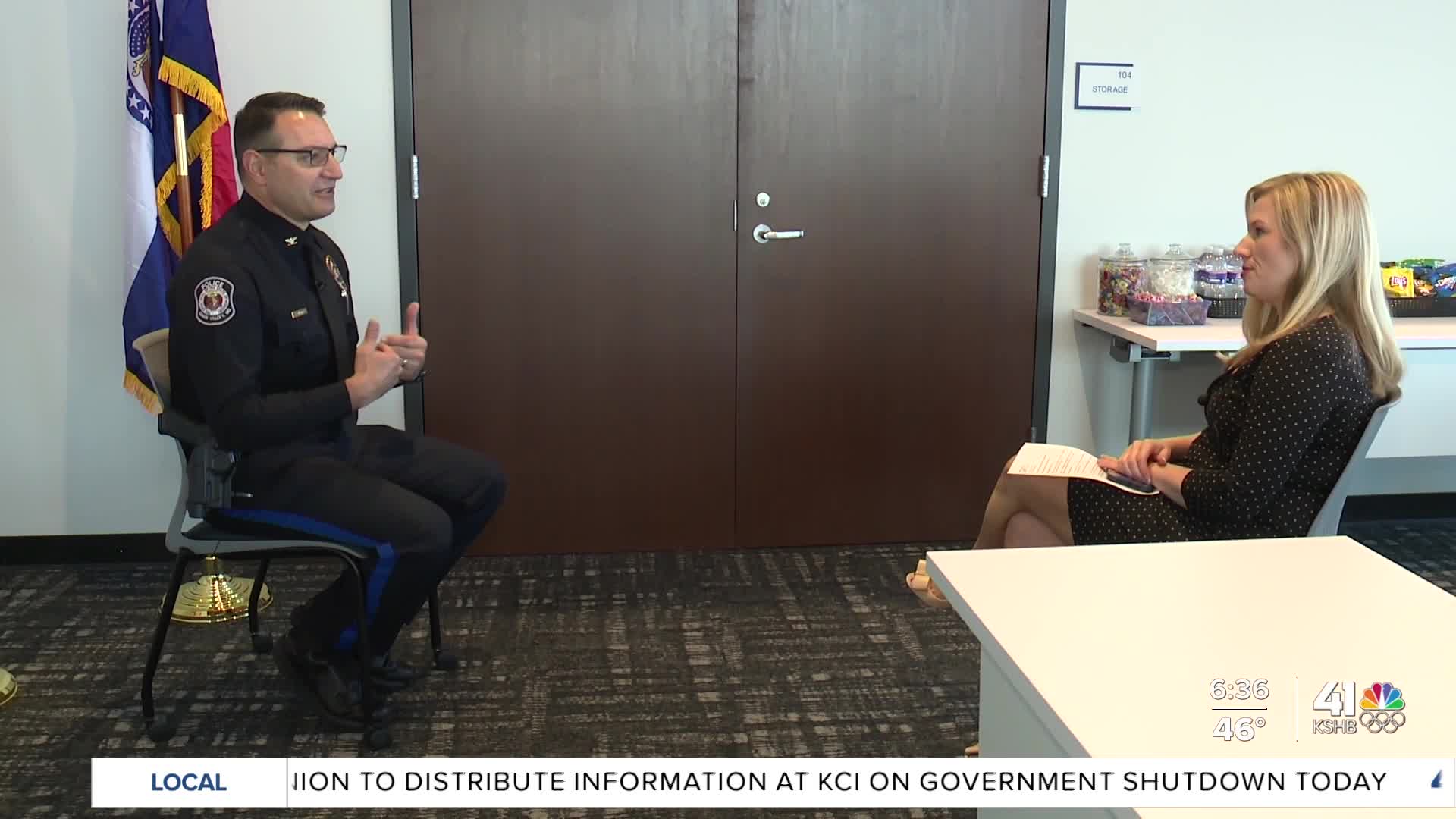KSHB 41 News anchor Lindsay Shively offers coverage on a wide variety of topics, including stories of interest to consumers. She learned of this story when the Grain Valley police chief stopped by KSHB 41's Let's Talk event in Grain Valley. Reach out to Linsday via email.
Our Let's Talk series over the last several months has been a great chance to learn more about story ideas in the communities across the Kansas City area.
For Grain Valley Police Chief Ed Turner, the story idea that's important in his community is mental health.
It's an attitude he's seen change dramatically in his three decades in law enforcement.
"Used to be you didn't talk about things that bothered you. You would shove them under," Turner told me. "I kind of likened it to a beach ball. You can push it under the surface of the water, and the deeper you push it, the more force it comes up when it elevates."
Talking is now encouraged. In fact, it's part of a state mandate.
Apart from services for critical incidents, a Missouri state statute says all peace officers and first responders have to have a mental health check-in with a service provider once every three to five years.
Turner took it even further. For two years now, their officers are required to have a check in every year. And their other staff can opt in too.

"I went the first day it was open to show them I'm not gonna ask you to do something I'm not gonna do," said Turner.
Grain Valley Police Department is one of many agencies working with Beyond The Storm Behavioral Health for mental health check-ins which remain private, only confirming the officer went.
KSHB 41 spoke with owner and counselor Rachel Murdock this summer.
"If I call 911, I want the people that come to me to do their best, and so we want to be able to support them all around," Murdock told Claire Bradshaw.

A gym and quiet room at the Grain Valley Police Department offer other ways to decompress. Turner said they also use chaplaincy practices. Trained peer support, which are fellow members of the department, can also reach out.
"Peer support, seeing a call on the nightly, calling the officers saying, 'Hey, everything good?' and making sure that they know somebody cares," said Turner.
Turner says supporting the whole person is mission critical, not just on the job's toughest days, but every day.
"Law enforcement goes around trying to solve everybody else's problems; They're not supposed to have problems," said Turner. "I hope the officers can understand that we care about them beyond the badge, beyond the uniform."
I reached out to the Missouri Department of Public Safety about this statute. They told me the Missouri State Highway Patrol, for example, uses a system that randomly selects eligible employees for their check-in with an outside clinic, which only reports back when employees attend, and doesn't detail the visits.
Missouri State Highway Patrol is on a three-year time period for those mental health check-ins.
—





